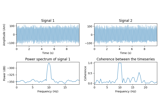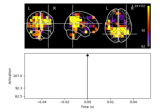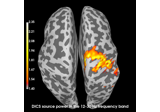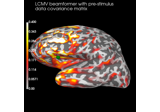mne.beamformer.Beamformer¶
- class mne.beamformer.Beamformer[source]¶
A computed beamformer.
Notes
New in version 0.17.
Methods
__contains__(key, /)True if the dictionary has the specified key, else False.
x.__getitem__(y) <==> x[y]
__iter__(/)Implement iter(self).
__len__(/)Return len(self).
clear()copy()Copy the beamformer.
fromkeys(iterable[, value])Create a new dictionary with keys from iterable and values set to value.
get(key[, default])Return the value for key if key is in the dictionary, else default.
items()keys()pop(k[,d])If key is not found, d is returned if given, otherwise KeyError is raised
popitem(/)Remove and return a (key, value) pair as a 2-tuple.
save(fname[, overwrite, verbose])Save the beamformer filter.
setdefault(key[, default])Insert key with a value of default if key is not in the dictionary.
update([E, ]**F)If E is present and has a .keys() method, then does: for k in E: D[k] = E[k] If E is present and lacks a .keys() method, then does: for k, v in E: D[k] = v In either case, this is followed by: for k in F: D[k] = F[k]
values()- __contains__(key, /)¶
True if the dictionary has the specified key, else False.
- __getitem__()¶
x.__getitem__(y) <==> x[y]
- __iter__(/)¶
Implement iter(self).
- __len__(/)¶
Return len(self).
- clear() None. Remove all items from D.¶
- copy()[source]¶
Copy the beamformer.
- Returns
- beamformerinstance of
Beamformer A deep copy of the beamformer.
- beamformerinstance of
- fromkeys(iterable, value=None, /)¶
Create a new dictionary with keys from iterable and values set to value.
- get(key, default=None, /)¶
Return the value for key if key is in the dictionary, else default.
- items() a set-like object providing a view on D’s items¶
- keys() a set-like object providing a view on D’s keys¶
- pop(k[, d]) v, remove specified key and return the corresponding value.¶
If key is not found, d is returned if given, otherwise KeyError is raised
- popitem(/)¶
Remove and return a (key, value) pair as a 2-tuple.
Pairs are returned in LIFO (last-in, first-out) order. Raises KeyError if the dict is empty.
- save(fname, overwrite=False, verbose=None)[source]¶
Save the beamformer filter.
- Parameters
- fname
str The filename to use to write the HDF5 data. Should end in
'-lcmv.h5'or'-dics.h5'.- overwritebool
If True (default False), overwrite the destination file if it exists.
- verbosebool,
str,int, orNone If not None, override default verbose level (see
mne.verbose()and Logging documentation for more). If used, it should be passed as a keyword-argument only.
- fname
- setdefault(key, default=None, /)¶
Insert key with a value of default if key is not in the dictionary.
Return the value for key if key is in the dictionary, else default.
- update([E, ]**F) None. Update D from dict/iterable E and F.¶
If E is present and has a .keys() method, then does: for k in E: D[k] = E[k] If E is present and lacks a .keys() method, then does: for k, v in E: D[k] = v In either case, this is followed by: for k in F: D[k] = F[k]
- values() an object providing a view on D’s values¶



